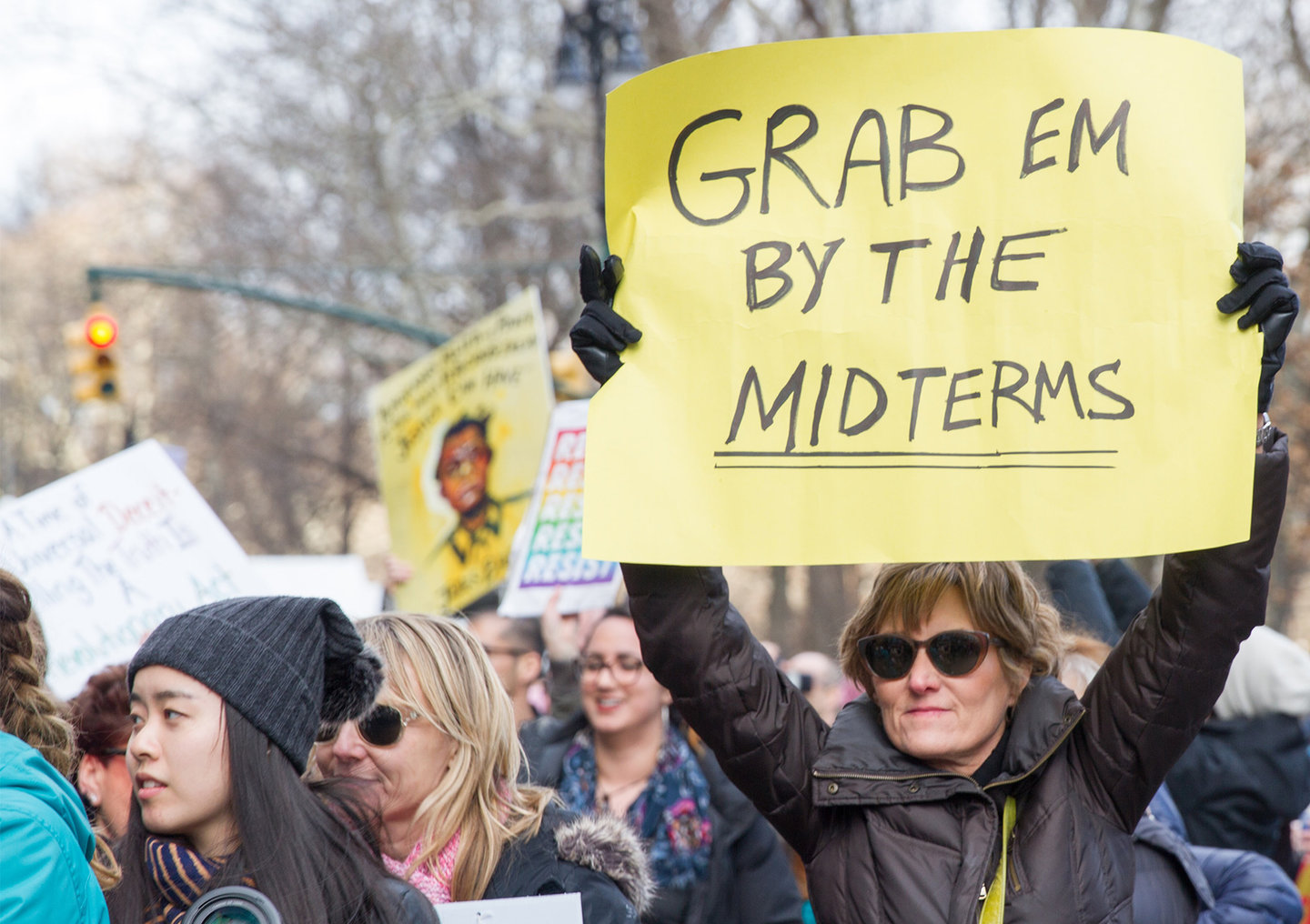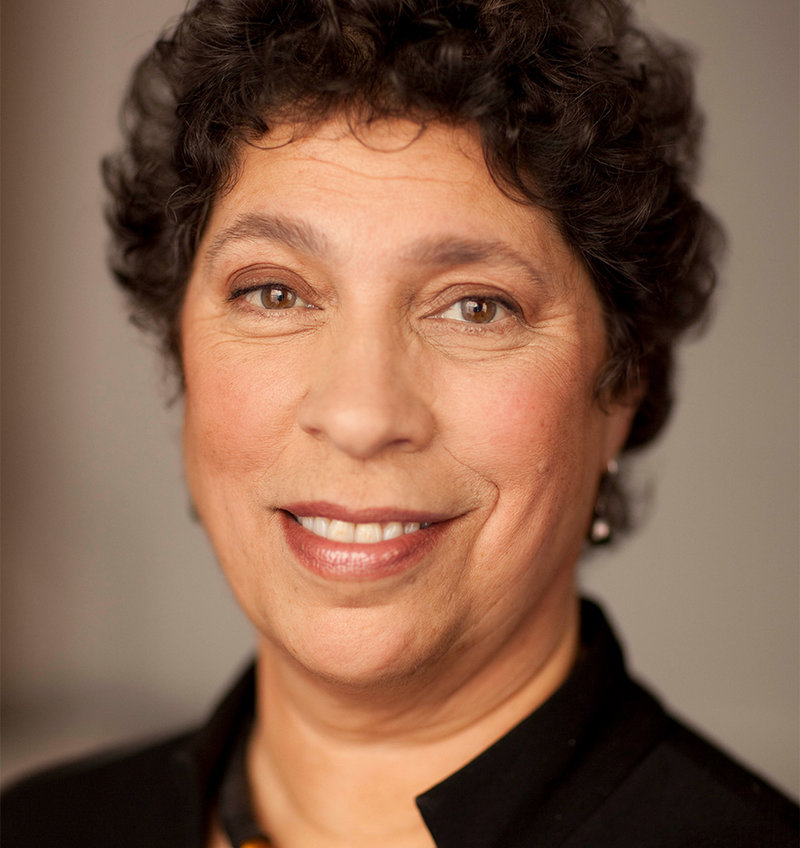Politics and Policy
ACLU President: “We're facing a disaster in the November election”
The American Civil Liberties Union is this year celebrating its centenary amid one of its most challenging years in existence. Lucy Ingham hears from ACLU president Susan Herman about what challenges it faces, and how technology can play a role

Founded in 1920, the American Civil Liberties Union (ACLU), has always been busy with its vital work holding the US government to account. But according to ACLU president Susan Herman, 2020 has been a particularly challenging year.
“We were busy before Donald Trump was elected, but for the last three and a half years, we have had to bring over 173 legal actions against the Trump administration for things like family separation, readmitting trans people in the military, etc,” she says, speaking at a press conference at technology conference Collision from Home.
But this was before the coronavirus pandemic occurred, and now the organisation is grappling with a myriad of additional challenges.
“A few months ago when Covid-19 hit, that generated an incredible need for ACLU work, we have at this point brought over 100 lawsuits and done a tremendous amount of lobbying and work in 40 states, about vulnerable populations in detention in jails, prisons and ICE detention, and trying to get people out of harm's way,” she explains.
“Because if you think about it, if you're detained and have no choice about socially isolating and distancing, and even getting soap, it's really a deathtrap.”
There have also been what she describes as “opportunistic efforts by states that are anti-abortion to declare abortion to be a non-essential medical service”, as well as “disasters having to do with voting rights” and the need to “double down on work” on structural racism in the aftermath of the Black Lives Matter protests.
And amid all this, the clock ticks down to the 2020 presidential election, and a situation that could pose a serious threat to true democracy.
“Voting rights to me are one of the most important things because we're facing a disaster in the November election unless people start preparing now for the need to have alternative, safe ways for people to vote, absentee balloting, etc.”

Susan Herman, president, ACLU
Image courtesy of Richard Corman, CC BY-SA 4.0
Fighting for a fair presidential election
Of particular concern to the ACLU, says Herman, is the fact that “political parties have been gaming voting rights”.
“The ACLU is nonpartisan, and we oppose gerrymandering, whether it is the republicans or the democrats who are doing it, we think everybody should have a fair and equal opportunity to vote,” she says.
“So we've been very concerned about gerrymandering and working on that because that dilutes political power, and also about the voter suppression techniques requiring voters to jump through hoops to get voter identification on the ridiculous theory that is to prevent fraud. There's virtually no fraud involved.”
She points to the case of the Wisconsin primary in April, where in-person voting and absentee ballot deadlines were not extended, despite the pandemic leading to limited opportunities to vote and many people missing out.
“Because of the pandemic, there were any number of polling places that were shut down. Part of the problem is that poll workers, the people who volunteer to work at the polls, tend to be elderly, so they were not willing to go into the polls and there were not enough people to work at physical polls,” she explains.
“There's a lot of talk right now on whether absentee balloting would be unreliable, and I think that's totally unfounded.”
“The legislature decided not to postpone the election and to go ahead and make people vote live. So in Milwaukee people were lined up for many, many blocks. And it's very unequal: where minorities tend to live in the city of Milwaukee people had to wait for hours to vote, whereas in the suburbs where it's not that populated, it was less of a problem.”
The approach, she says, also led people having to choose between their health and their vote, with some people becoming ill after voting.
Fearing a repeat of the situation in November, the ACLU has made considerable efforts to improve the availability of absentee ballots, which are now available in around 30 states. However, it has faced opposition such as in Texas where you need to be disabled to get an absentee ballot, and “being vulnerable to the pandemic does not count as a disability”.
Meanwhile, the organisation is having to content with suggestions that absentee balloting is unreliable and increases the risk of fraud, something that Herman wholly rejects.
“There's a lot of talk right now on whether absentee balloting would be unreliable, and I think that's totally unfounded. A lot of people have voted, there are some states that use primarily absentee balloting. And fraud is really just not a problem.”
“We have sued every president”: How the ACLU remains nonpartisan
The issues that the ACLU contends with are – naturally – deeply political in nature, but the organisation makes great efforts to avoid being drawn into party politics, particularly during the divided times we find ourselves in now.
“I daresay we have sued every president in the last hundred years, so we are an equal opportunity suers; Barak Obama did not like when we sued him,” she says.
However, some have accused the ACLU of being biased against Trump, a suggestion Herman wholly rejects.
“We have had occasion to sue the Trump administration more often because their policies are more radical,” she says.
“So you will not hear me say the ACLU is anti-Trump. In fact, we have represented citizens for Trump, we have represented organisations that wanted to demonstrate on behalf of Mr Trump. We try our best to be non-partisan.”
“We have had occasion to sue the Trump administration more often because their policies are more radical.”
This is not to say that the ACLU doesn’t get involved in politics, with Herman highlighting “what we call our political work, but it’s not partisan”.
“It's not about trying to get particular people elected or not elected, but we've become quite active, and not only in the courts, but in trying to educate voters about issues of civil liberties,” she says.
“One of the things we've been doing for the last few years is to urge people to look at the down ballot elections of people like the district attorney and the sheriff, and the people who are at the helm of criminal justice policy and implementation in their areas.
“And we urge people to find out more about those people's positions, to go to debates and ask them questions about what their positions are, and use that leverage to try to get them to take better positions.
“Ask them what's your position on cash bail? Do you think you have a problem with your wrongful convictions? What do you do about racial disparities? And try to get candidates to commit themselves to positions that will support civil liberties.”

Image courtesy of Dan Dennis on Unsplash
The growing presence of technology
Across the 100 years the ACLU has been running, technology has been a firm and growing backbone to the political space.
“I think the story of civil liberties in the 20th and 21st century has been the development of technologies,” says Herman.
“We had to bring lawsuits to talk about the application of the First Amendment to the internet; we had a big case a few years ago about listening to everybody's cell phone conversations and tracking locations.”
However, amid the pandemic, much of the ACLU’s current work around technology relates to the use of Covid-19 tracking and tracing programmes, and “whether your cell phone can be used to track where you are”.
“What we're concerned about is that once you have this tracking system to be collecting everybody's data, what's going to happen to that data?”
“What we say is that instead of viewing the tracing of the virus as being that you have to trade off privacy for health, we don't think that that's the right paradigm to be looking at,” she says.
“We think that you have to look very carefully, first of all, to make sure that the programmes are being designed by the scientists, by the experts and not just by a company that wants to make money – we'd like to see public health officials involved. We would like to see a lot of accountability, a lot of transparency.”
In particular, the ACLU is alert to the very real possibility of misuse of such data, long after the pandemic has subsided.
“What we're concerned about is that once you have this tracking system to be collecting everybody's data, what's going to happen to that data?” she says.
“Is there an exit strategy? Do we have limits on retention and who can get access to it? So that's a big one that's coming up in all the states.”
Cover image courtesy of Mirah Curzer on Unsplash
Back to top